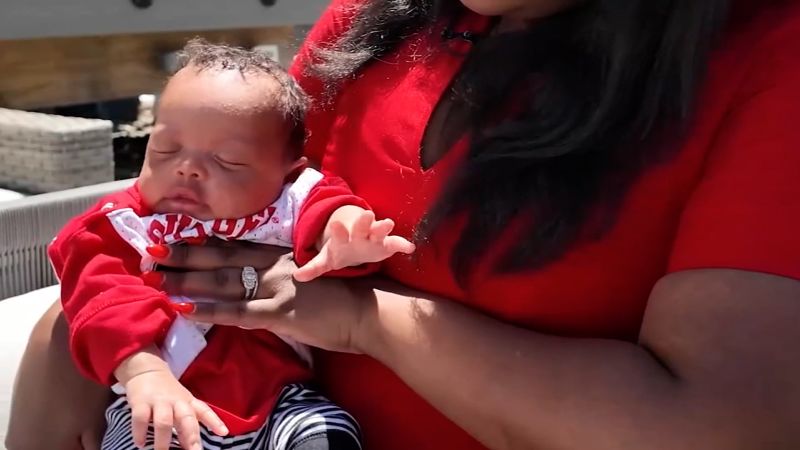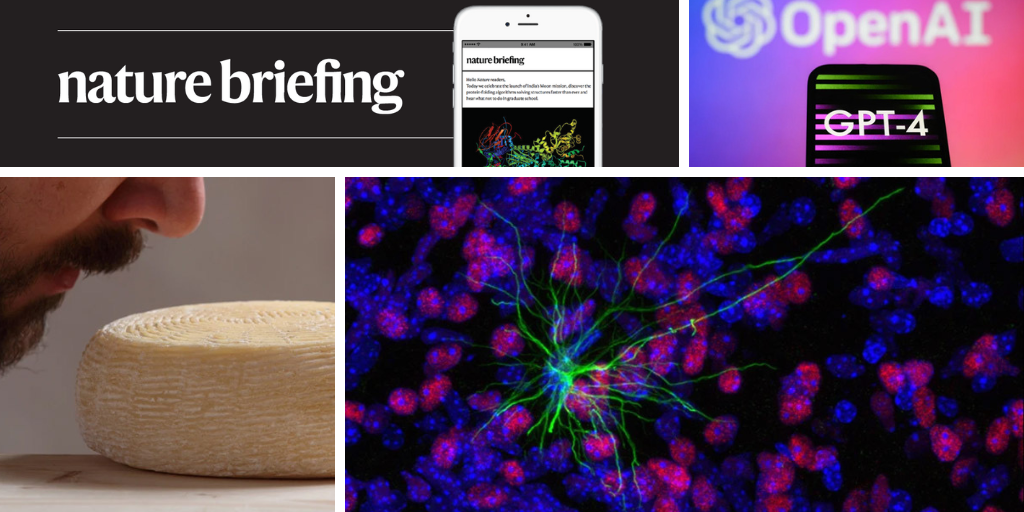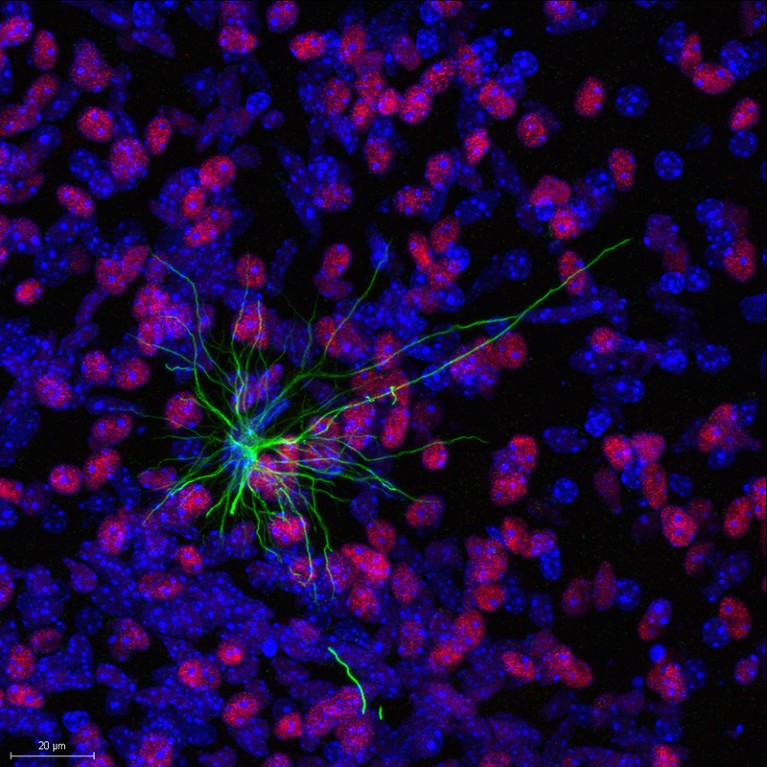Hello Nature readers, would you like to get this Briefing in your inbox free every day? Sign up here
A mouse’s brain (red and blue) hosts a human astrocyte (green) that arose from transplanted neural stem cells.Credit: Liu et al./Cell (2023)
Scientists have followed the developmental destiny of individual human brain cells as they progress from stem cells to specialized structures in the brain. In a technical “tour de force”, the team painstakingly purified and classified undifferentiated brain cells from human fetuses. The cells were injected into mouse brains, and, six months later, the researchers analysed the cellular identities that the cells’ progeny had taken. The hope is that this study, and others like it, will illuminate how cell development goes awry in neurological diseases.
Researchers have mapped the precise 3D structure of a human odour receptor for the first time. The work shows how OR51E2 ‘recognizes’ the cheesy smelling propionate molecule through specific molecular interactions that switch the receptor on. Mutations affecting one of the amino acids in a region of the receptor called the binding pocket thwart the interactions. The study is a step towards scientists’ goal of building a molecular atlas of olfactory receptors and the odours they recognize.
GPT-4, the latest incarnation of the artificial-intelligence (AI) system that powers ChatGPT, has stunned people with its ability to generate human-like text and images from almost any prompt. Researchers say this type of AI might change science similarly to how the Internet has changed it. Yet many people are frustrated that the model’s underlying engineering is cloaked in secrecy. Assurances about GPT-4’s improved safety by its creator OpenAI fall short for some. “It’s just completely impossible to do science with a model like this,” says AI researcher Sasha Luccioni.
Features & opinion
Bad mentors can become tormentors who ghost you, sap your energy or limit your career progression. Often, the power dynamic leaves the trainee feeling powerless. Higher-education practitioners Jennifer Davila and Ruth Gotian offer five tips on how to deal with poor mentorship, including clearly articulating your goals, examining professional dynamics and bringing in outside perspectives. As a last resort, consider alternative options, such as moving to a different lab.
An evolutionary engineer refuses to let her creation fail in the latest short story for Nature’s Futures series.
Andrew Robinson’s pick of the top five science books to read this week includes a controversial take on the mysteries of quantum physics, a history of unwelcome, over-hyped and undelivered inventions, and a discussion of how to turn ethnology exhibitions established during the colonial period into ‘cosmopolitan museums’.
Researchers have created bacteria that are immune to viral infections. Viruses exploit the universality of the genetic code, so “if you change this language, then you can achieve a situation where you don’t have this cross communication anymore”, synthetic biologist Akos Nyerges tells the Nature Podcast. The virus-proof bacteria have a slimmed-down genetic code, and their protein-producing machinery deliberately inserts the wrong amino acid into viral proteins. The method could make biomolecule-producing cells resistant to viral infections and reduce unwanted sharing of genes from modified organisms.
Nature Podcast | 32 min listen
Subscribe to the Nature Podcast on Apple Podcasts, Google Podcasts or Spotify.






More News
Accurate structure prediction of biomolecular interactions with AlphaFold 3 – Nature
Elastic films of single-crystal two-dimensional covalent organic frameworks – Nature
Publisher Correction: High carrier mobility along the [111] orientation in Cu2O photoelectrodes – Nature